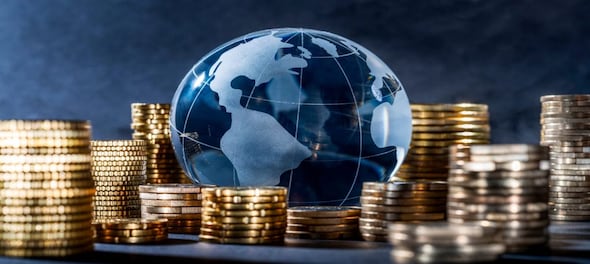
The World Bank on Tuesday, June 6, said the global economy is in a "precarious position" and the risk of financial stress in emerging market and developing economies (EMDEs) is intensifying amid elevated global interest rates.
According to the World Bank’s latest Global Economic Prospects report, global growth has slowed sharply and is projected to decelerate from 3.1 percent in 2022 to 2.1 percent in 2023.
The World Bank expressed concern about the impact of increasingly restrictive global credit conditions on EMDEs. One in four EMDEs has lost access to international bond markets, particularly those with underlying vulnerabilities such as low creditworthiness. These economies are highly vulnerable to additional shocks, and their growth projections for 2023 are less than half of what they were a year ago.
"In EMDEs other than China, growth is set to slow to 2.9 percent this year from 4.1 percent last year. These forecasts reflect broad-based downgrades: growth projections for 70 percent of EMDEs and nearly all advanced economies have been downgraded," the report said.
By the end of 2024, economic activity in these economies is expected to be approximately 5 percent lower than projected before the pandemic. In low-income countries, per capita incomes in 2024 will still be below 2019 levels in more than one-third of the countries, perpetuating extreme poverty.
"Many developing economies are struggling to cope with weak growth, persistently high inflation, and record debt levels. Yet new hazards — such as the possibility of more widespread spillovers from renewed financial stress in advanced economies — could make matters even worse for them,” said Ayhan Kose, Deputy Chief Economist of the World Bank Group.
"Policy makers in these economies should act promptly to prevent financial contagion and reduce near-term domestic vulnerabilities," Kose added.
The report also addresses the growth prospects of advanced economies, which are expected to decelerate. The US economy is forecast to grow at 1.1 percent in 2023 but slow down to 0.8 percent in 2024 due to the lingering impact of rising interest rates. In the euro area, growth is projected to slow to 0.4 percent in 2023 compared to 3.5 percent in 2022, primarily due to monetary policy tightening and energy-price increases.
"The surest way to reduce poverty and spread prosperity is through employment — and slower growth makes job creation a lot harder," said World Bank Group President Ajay Banga, adding, "It’s important to keep in mind that growth forecasts are not destiny. We have an opportunity to turn the tide but it will take us all working together."
Chief Economist and Senior Vice President of the World Bank Group Indermit Gill described the world economy as being far from the dynamism required to address poverty, climate change, and human capital replenishment.
"In 2023, trade will grow at less than a third of its pace in the years before the pandemic. In emerging markets and developing economies, debt pressures are growing due to higher interest rates. Fiscal weaknesses have already tipped many low-income countries into debt distress. Meanwhile, the financing needs to achieve the sustainable development goals are far greater than even the most optimistic projections of private investment," Gill said.
The World Bank upgraded its 2023 outlook for China after Beijing late last year relaxed its draconian zero-COVID policies, which had restricted travel and hammered its economy. The world’s second-biggest economy is now expected to grow 5.6 percent in 2023, up from 3 percent last year. The World Bank envisions Japan’s growth decelerating to 0.8 percent this year from 1 percent in 2022. It foresees India’s growth slowing to a still-strong 6.3 percent from 7.2 percent last year.
The bank predicts that global trade will slow markedly this year. It foresees a sharp drop in the price of energy and other commodities this year and next.
(Edited by : Shoma Bhattacharjee)
Check out our in-depth Market Coverage, Business News & get real-time Stock Market Updates on CNBC-TV18. Also, Watch our channels CNBC-TV18, CNBC Awaaz and CNBC Bajar Live on-the-go!


'Borrowed' leaders: Congress hits out at AAP for not fielding their own candidates in Punjab
Apr 28, 2024 9:53 PM
EC asks AAP to modify election campaign song and Kejriwal's party is miffed
Apr 28, 2024 9:25 PM

